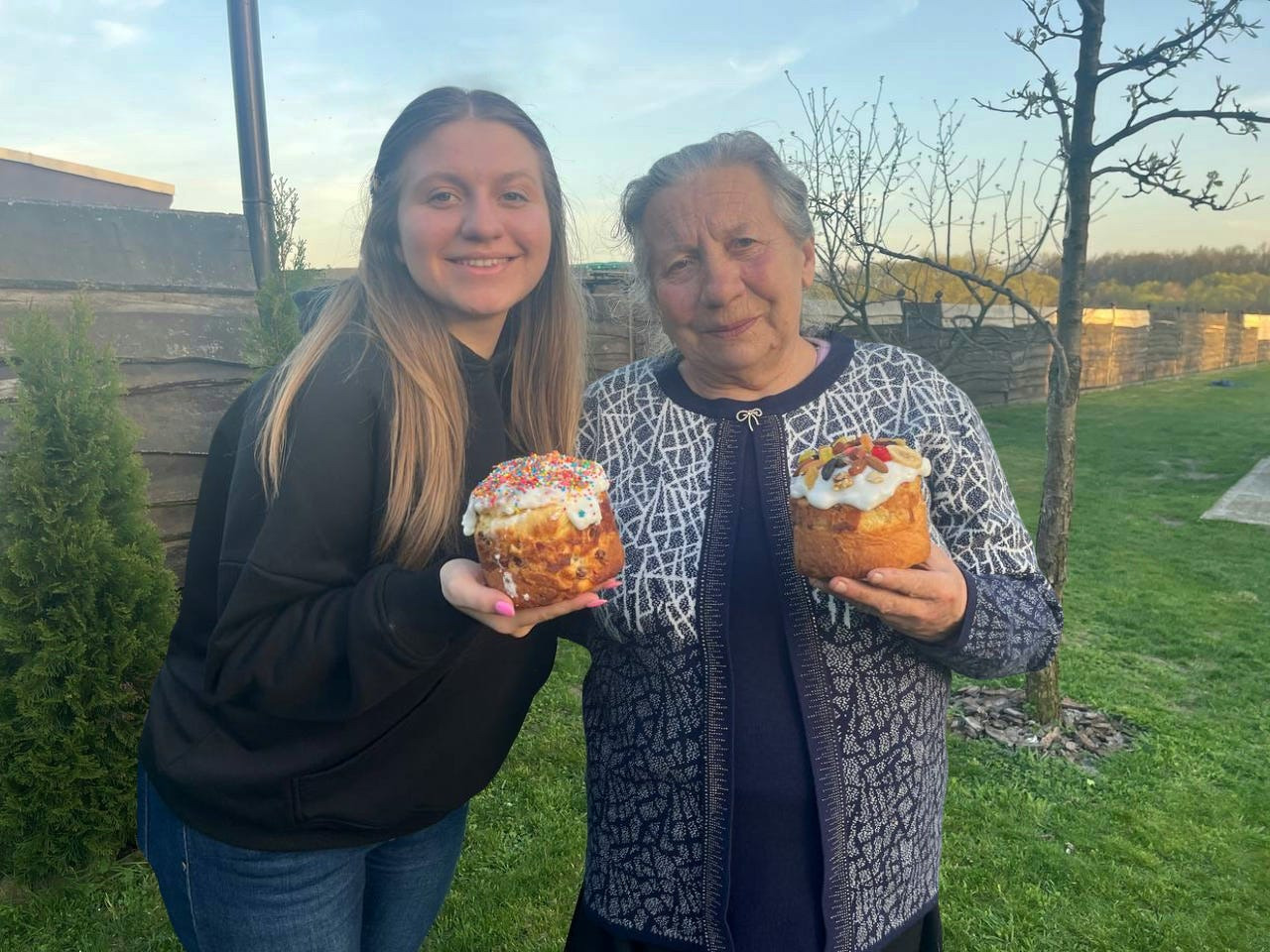Editor’s Note: The key to good Easter bread, as Zoriana’s grandmother will teach you today in this story, is peace in the household.
We here in Ukraine wish you a serene, peaceful Easter to all who observe. We haven’t given up on a just, lasting peace here – thanks for reading along with us, and supporting us in that conviction.
We’re in the midst of our second anniversary subscription drive. If you can, will you support us to last another year?
The smell of the Easter bread tempted me so much that I wanted to bite into it immediately.
But if I did, I knew the treat would be gone, and the holiday spirit would slip through my fingers.
I felt like a little girl again.
Not just because, like a child, I had to resist the immediate urge to eat the tasty bread, but also the fact that I was back in touch with my family traditions, which have been under threat for centuries.
Easter holds a special place in Ukrainians' lives, as the main Christian holiday and a family and cultural event. It symbolizes the victory of life over death and light over darkness – a message which also brings faith during wartime.
During the Soviet era, Ukrainians were forbidden from celebrating Easter.
Baking Easter bread, attending church, or simply blessing food could label you as a dissenter.
However, these traditions never disappeared. Through them, our ancestors encoded what it means to be Ukrainian. This weekend, families gather to bake and bless Easter bread, send it to the frontline, and pass recipes down through generations.
After the paywall:
What are the main attributes of Easter in Ukraine?
How the Soviet government tried to steal Easter from Ukrainians.
Why do volunteers no longer as many Paskas to the frontline
Go behind the scenes: cooking paska with Zoriana and her grandmother


